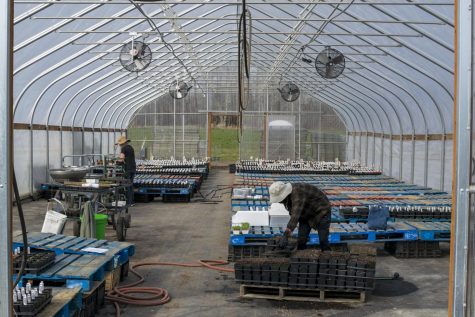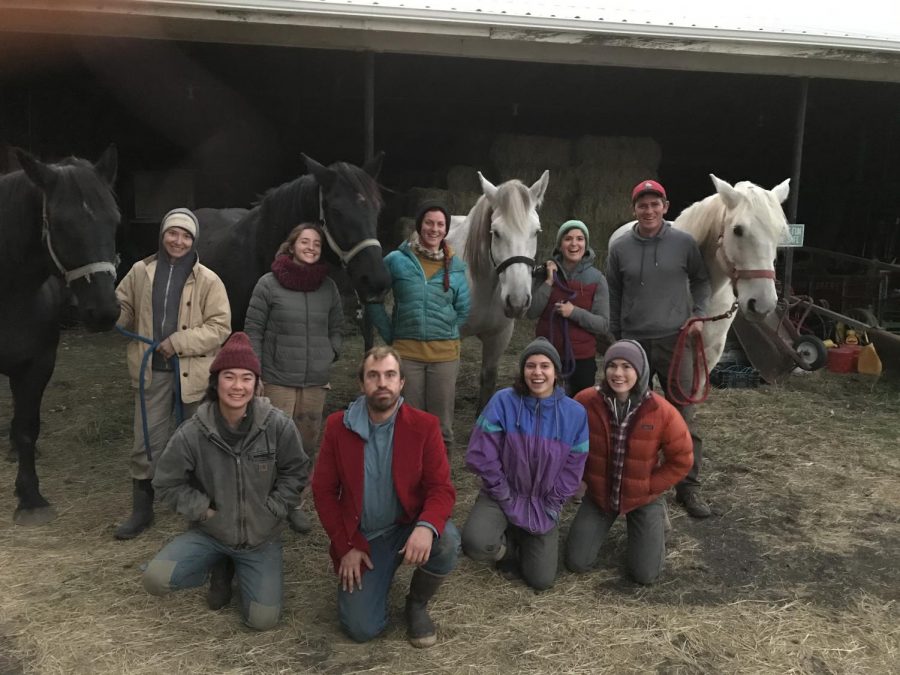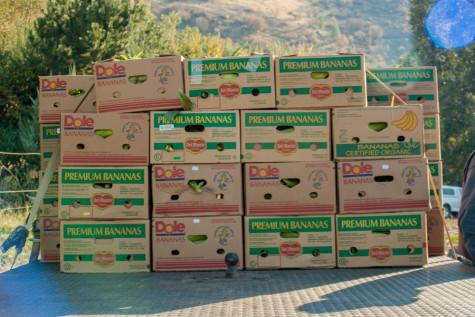“This is a long time coming”: Legislature may grant Washington farmworkers overtime pay by rectifying longstanding exclusion from labor standards
March 25, 2021
Many Washington farmworkers spend over 80 hours a week in the fields without overtime pay. A bipartisan bill before the Washington State Legislature could finally change that.
Edgar Franks is the Political Director for Familias Unidas por la Justicia, an independent labor union of more than 400 Indigenous farmworkers in Skagit and Whatcom Counties.

“There shouldn’t be two sets of laws: one for these types of workers and one for this worker,” Franks said. “We wanted to be included in the same rights as every worker.”
In 1938, federal lawmakers secured overtime standards for all sectors except agriculture. Farmworkers, who were mostly black and in the Southern U.S., were exempted from these labor rights. Washington state labor laws followed suit.
Dairy workers challenged this precedent in a November 2020 Washington State Supreme Court case. The Court ruled that denial of overtime pay to agricultural workers was unconstitutional, swiftly undoing the decades old exclusion.
Franks said the court decision was crucial to farmworker communities who have for a long time faced discrimination under U.S. labor laws. However, the ruling set a precedent but did not explicitly secure overtime for farmworkers.
According to Franks, this court ruling helped set up the Senate Bill 5172. Bill 5172 was originally written to be pro-employer and meant to shield agricultural employers from paying three years of retroactive overtime. To make the bill acceptable to the farmworker community, Franks’ union helped rewrite the measure so that it requires overtime pay in agriculture jobs.
Many farmers oppose the bill, claiming that the farming industry’s unpredictable nature and seasonal windows, which include intense labor during harvest and minimal hours during winter, does not fit the nine to five employment standards.
Whitman alumnus Tom Williams ‘69, lifelong farmer and co-owner of Williams Organic Farms, said this isn’t the dominant nature of the industry anymore. He shared his support for the bill, contrary to the view of most farmers.
Williams explained that the overtime exemption for farmworkers may have made sense in 1900, but that today farms tend to be less volatile and largely industrial, with high amounts of production often year-round. About 20 percent of growers are producing 80 percent of the profit.
Nowadays, large-scale growers in Walla Walla like producers of apples, wheat, potatoes and grapes run predominantly mechanized systems. Small combine harvesters have been replaced with large ones, a single truck can haul 70,000 pounds of grain to the river and growers have three employees when they used to have 30. Sweet onion farms now supply major chains full-time.
“As farmers, you know, we sit back and kind of try to express a feeling like Old MacDonald’s Farm… and tell people like you that we don’t know anything and we’re just old country people, but that’s not the reality. There’s no real difference there,” Williams said. “The reality is there ought to be one system, whether a person works on the farm or in town. It ought to be the same.”

Plant scientist and Whitman alumnus Walker Orr ‘20 said in an email to The Wire that the potential “threat of automation” often was used to argue against overtime pay and leveraged by growers to continue exploiting their workforce.
“Wheat threshing and cutting used to be a labor-intensive project that drew a large seasonal workforce to rural areas. Rural organizing — of which Walla Walla’s Grange Hall on Howard Street is a monument — presented a threat to landowners’ power,” Orr said. “Making farmworkers dispensable has thus been a priority of landowners for the last century.”
Orr sees overtime pay as a small step in the direction to an equitable and sustainable food system.
“With an increased standard of living, many farmworkers will invest their wages in projects that allow them to take more ownership over their labor. This will spur innovation in the food system,” Orr said.
As a compromise to protect small farms, Bill 5172 was amended with a phase-in period. In January 2022, overtime will be required after a 55-hour week. In January 2023, it will be after 48 hours, and in January 2024, after 40 hours.
A living wage, time off and healthcare benefits are “often taken for granted in other sectors of the job market,” and are not provided in the farming sector, said Chandler Briggs, owner and farmer of local small-acreage Hayshaker Farm in an email to The Wire. “We have a long way to go as a society in truly valuing the work done in the fields.”

Washington has about 100,000 farmworkers, including undocumented workers. The agricultural industry represents nearly 13 percent of total employment in Walla Walla County. Briggs thinks the bill will benefit the livelihoods of numerous farmworkers locally.
“The farmworker jobs we’ve created at Hayshaker Farm are a small few in an industry ripe with wealth in assets and land ownership, and many farm businesses have no excuse but to improve their conditions,” Briggs said.
Franks aims to someday secure retroactive pay so that farmworkers can claim lost wages due to unjust labor standards.
“We know that’s a hard ask. I think that panics the industry,” Frank said. “Those are things that we can fight for down the line.”
One ambition is to reach the federal level by rectifying this six decade-old overtime inequity.
“I think this is a long time coming for farmworkers everywhere… hopefully this inspires more workers to go out and organize and fight back against an industry that has been doing the most it can to keep its power by denying workers their rights,” Franks said.
“I think this is just proof of what we can do once we’re organized and once we have a vision of how we want to change things.”








